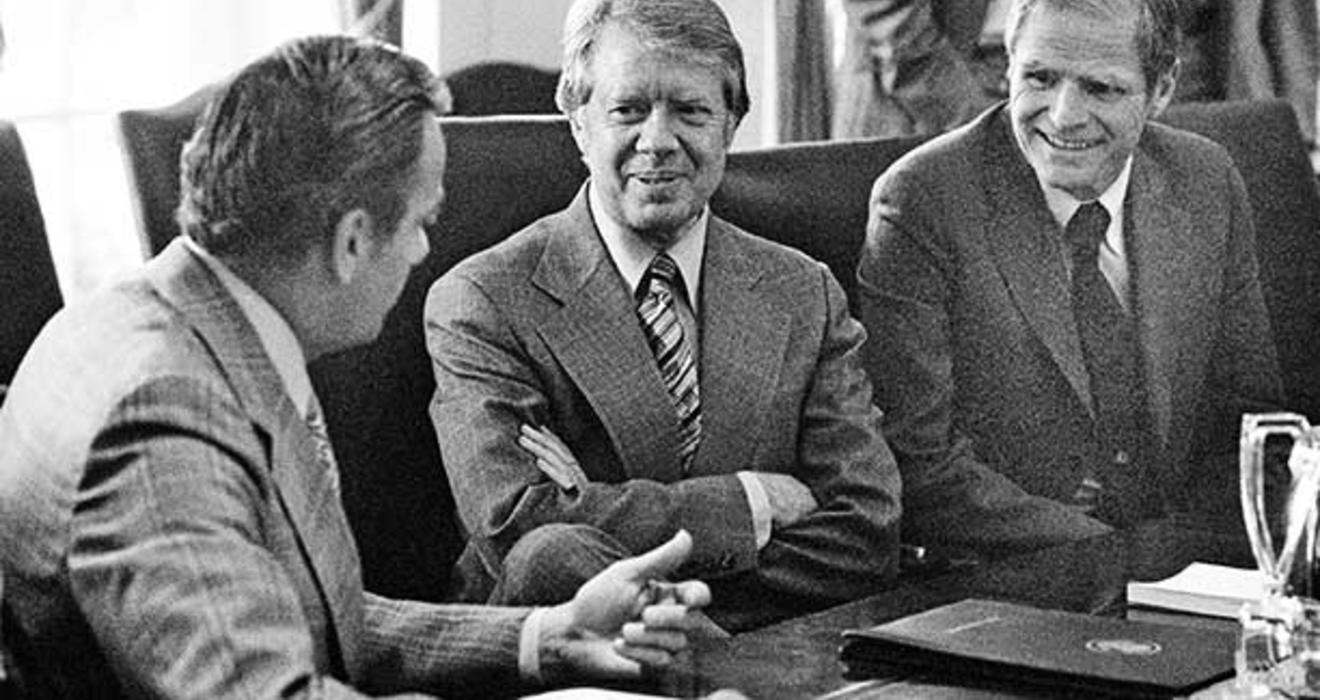
April 1, 1924 • Jan. 4, 2018
BRENDAN BYRNE ’49 and I were friends for almost 50 years. It was an unlikely friendship that few could have predicted.
He was a prosecutor and Superior Court judge in what was then New Jersey’s largest county, Essex. New Jersey has had its share of corrupt officials, and in a conversation between two mob bosses being taped by the FBI, Brendan’s name came up. “He can’t be bought,” the bosses agreed. On that slogan Brendan ran and was elected governor, serving from 1974 through 1982.
At the time, I was a young Republican just elected leader of the New Jersey State Assembly — and my job was to oppose the new Democratic governor. We criticized each other in public but began to look seriously at each other’s positions; we really engaged for the first time over Brendan’s efforts to fund education through the state’s first income tax. Then we started to meet privately, trying to flush out each other’s position to see if there was room for compromise. We seldom agreed, but we came to like and respect each other. What followed was a lifelong friendship.
Brendan had a dry, somewhat boring manner — by New Jersey standards, at least. Nonetheless, his leadership was transformative. He pushed through the income tax with a bipartisan vote. In his speech on the tax to the Legislature, he quoted the boxer Joe Louis, who, when asked how he would handle his speedy opponent Billy Conn, had replied: “He can run, but he can’t hide.” Though the tax was wildly unpopular and earned him the nickname “One-term Byrne,” Brendan was re-elected.
He brought casino gambling to Atlantic City, and in what may have been his finest accomplishment, he got the Pinelands Protection Act passed, creating the largest preserved open space between Boston and Atlanta.
I was elected governor in a very close race, succeeding Brendan, and faced strong Democratic majorities in both houses, which were reluctant to give this new Republican governor legislative victories. Brendan and I were meeting once or twice a week to play tennis; afterward, we’d sit together and he’d teach me how to deal with the state’s leading Democrats. His help was invaluable.
After my term ended, Brendan and I started a dialogue on New Jersey public television, which was followed by a joint column published in the state’s largest paper, The Star-Ledger. This ran for almost 30 years.
We were asked to appear jointly before organizations all over the state. People often commented that it was unusual but quite wonderful to see a Republican and a Democrat discussing issues and disagreeing but at the same time showing deep respect for each other and for the other’s point of view. I was the straight man. Brendan had a wonderful sense of humor. When asked what it was like to be out of office, he would reply: “Now they wave at me with all five fingers.” Then he’d ask to be buried in Jersey City so he could continue to partake in politics.
To me he was New Jersey’s version of Harry Truman, a straight talker who became more accomplished than anyone expected. He did everything with integrity and compassion. He was a partisan Democrat, yet his stands were always principled. If only today’s leaders, in both parties, would follow his example.
Thomas Kean ’57 served two terms as governor of New Jersey.






No responses yet